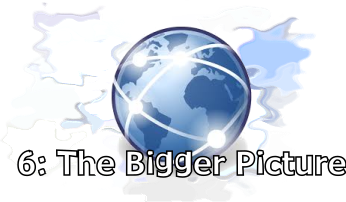| Keyword | Definition |
|---|
| Computer Misuse Act 1990 | Legislation which defines three increasingly serious offences: to gain access to a computer without permission, to modify computer material without permission or to gain unauthorised access to a computer with intent to commit further crime |
| Copyright | the legal protection of the owner of a piece of work to protect the right to reproduce, adapt or sell it. |
| Creative Commons | a type of licensing agreement which makes it easy for people to share their work freely whilst still protecting their rights to be known as the author |
| Intellectual Property | an image, document, computer program or any other creation for which the Copyright, Designs and Patent Act 1988 sets out the rights of the creator to be known as the author and owner |
| Legislation | laws which determine what is legal, illegal and what rights people have regarding technology |
| Licensing | A legal arrangement between the owner and user of a software application setting out what the user is and isn't legally allowed to do |
| Open source | A type of software where programs are released for free along with the program code so that anyone can adapt, extend or share it, often without any financial cost. |
| Patent | legal protection that an inventor can apply for in order to prevent anyone else making and selling their invention. Software can't be patented in the UK but can be in the US. |
| Permission | Asking for and receiving consent from the owner of a computer system before you access it, or from the copyright holder of a piece of work before you use it. |
| Proprietary | A type of software where programs made by a commercial company which you usually pay for up front or with a monthly subscription. You're not allowed to adapt or share the code. |




